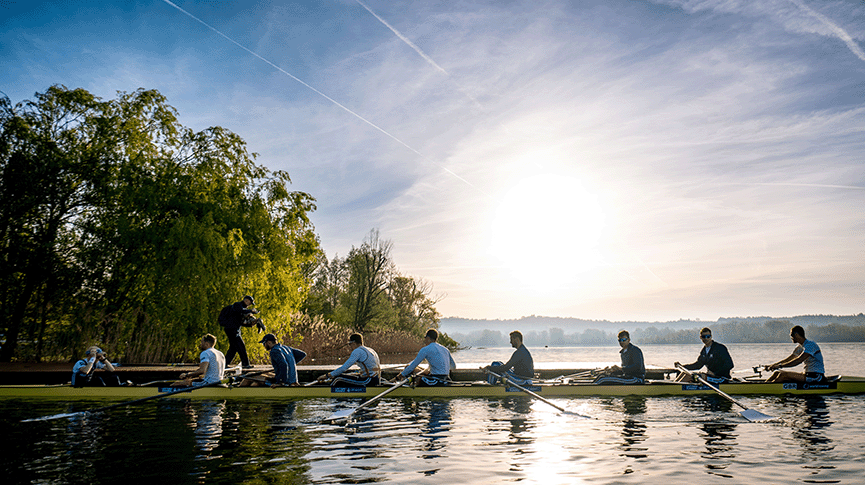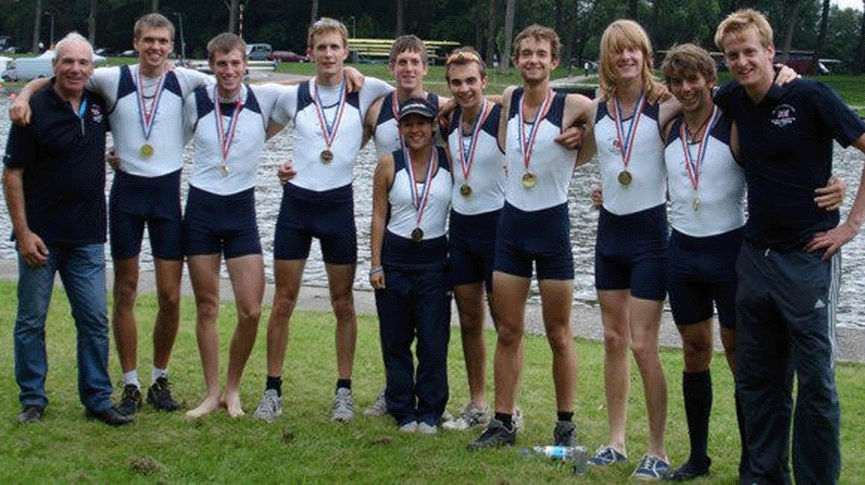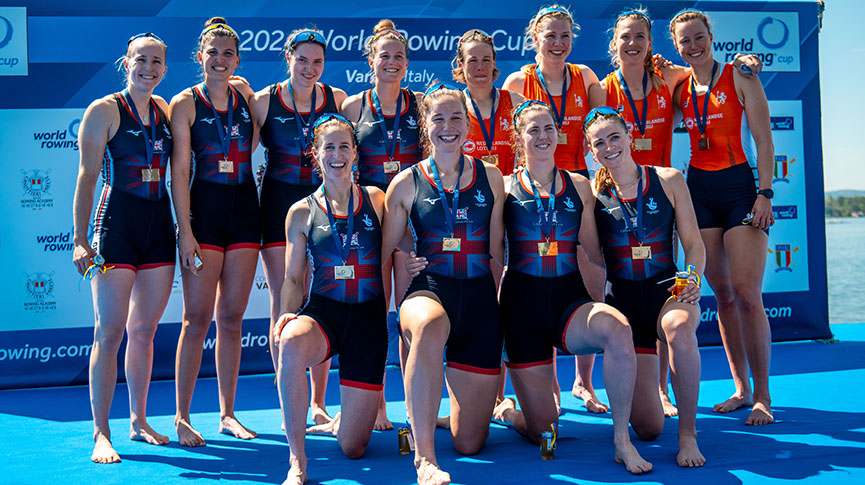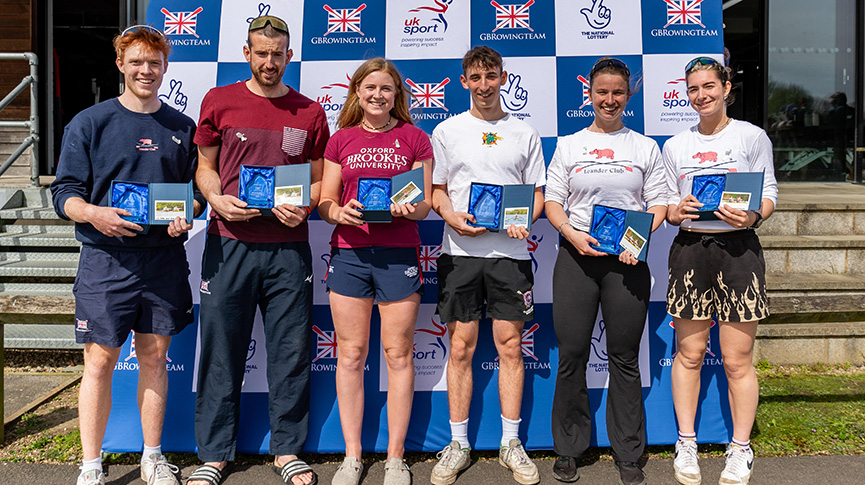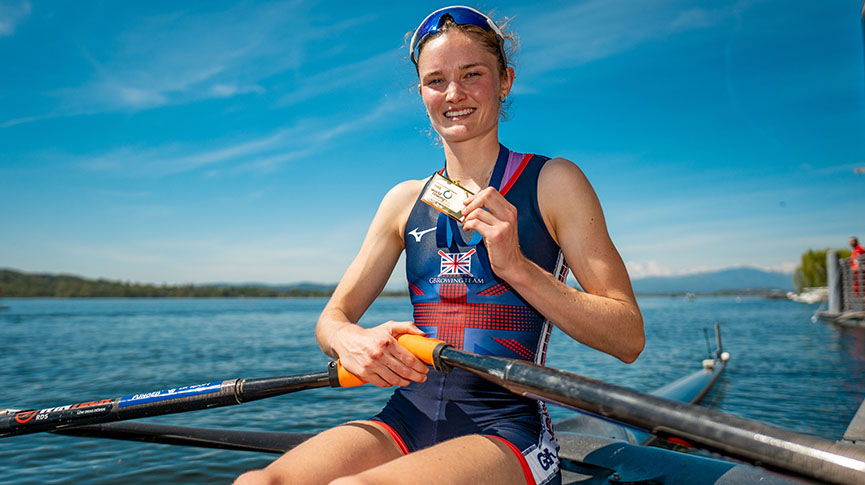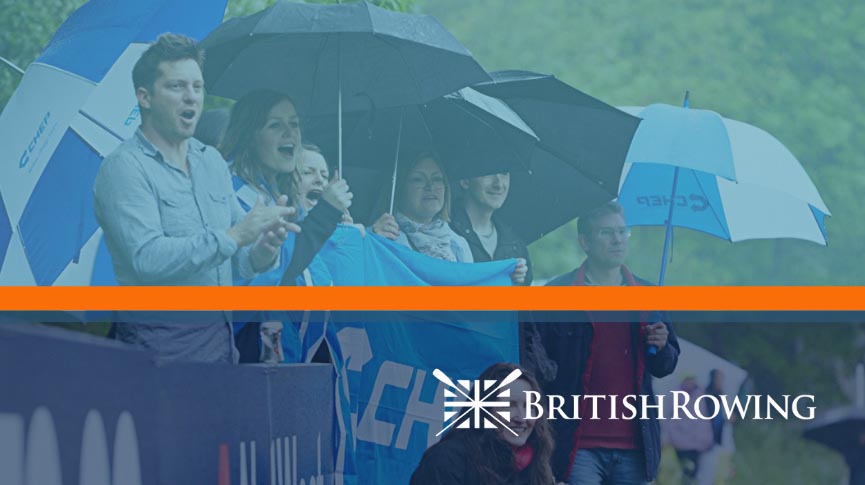WRJC 2011: From Almaty to Eton

Athletes from around the world gathered at Eton Dorney last week for the 2011 World Junior Rowing Championships, but few can have felt quite as far from home as Kazakhstan single sculler Vladislav Yakovlev.
The 18-year old and his coach, former Olympic rower Vladimir Belogonov, travelled from Kazakhstan alone – spending one week training at Leander Club before the championships began at Dorney Lake on August 3rd.
We caught up with the young Kazakh and Belogonov at the championships, and the pair were overjoyed to be racing in England.
“This is our first time in England, and we’ve done a little training at a good club – Leander,” said Belogonov, who finished 16th in the men’s single sculls at the 2000 Olympic Games in Sydney.
“It’s one of the biggest clubs. It was beautiful, with a good tradition. Just excellent.
“Eton is also good, and the accommodation is excellent.”
Harder to row in Kazakhstan
Whilst the English weather proved challenging at times for the athletes and spectators alike, Belogonov was keen to point out that the blustery conditions were a welcome change from summer in Central Asia.
“It’s very different in Kazakhstan. My home is a long distance away – 7,000km. There’s a big difference in the climate. In my home, it’s so hot, and there’s no water in the air.
“It’s harder to row in Kazakhstan. In summer it’s hot, and in the winter it’s very cold – minus 40 degrees!”
Despite impressing in his initial heat – finishing strongly to secure second place –a disastrous quarter-final saw Yakovlev finish last, having trailed throughout the race.
“This was my fault,” a disappointed Belogonov said immediately after the race. “I changed the boat, because I thought the wind would be stronger.
“Now it is windy again, and it would have been ok, but it is too late!
“Vladislav’s power is maximal, and his head is ok – no problem. Maybe it is my problem.”
Yakovlev returned to the water to contest the C/D semi-final in his initial boat, and the change made all the difference for the teenage rower.
The Kazakh finished first – two-seconds ahead of Tunisia – in the semi-final, before storming to a three-and-a-half-second victory over the same opponent in the C final.

Big country, small sport
“Rowing is small in Kazakhstan, it’s difficult,” Belogonov said, when asked about the future of rowing in Kazakhstan.
“It is a very big country, and we are a very small sport. There are 30 to 150 rowers in all of Kazakhstan, and only three places to row. Rowing is free, but the heat makes it difficult for people.”
However, the 34-year-old Olympian – who retired from rowing following a car accident – is particularly proud of Yakovlev’s achievements, given the social and political difficulties Kazakhstan experienced throughout his early childhood.
“1991 to 1993 was the most difficult time to live in Kazakhstan (following the dissolution of the Soviet Union),” said Belogonov.
“We were still only taking small steps in 1995 and 1996. My boy is not at a club, he’s in the Soviet Union school system. It’s a little [rowing] centre at a school.”
So what next for Kazakhstan’s brightest Junior prospect? Belogonov has his sights set particularly high for his protégé.
“Kazakhstan is in the Asia region, and next year there is the Asian qualification for the London Olympics,” he said, referring to the FISA Asian Olympic Qualification Regatta in Chungju, South Korea.
“Maybe it is possible. Next year – Olympic Games!”


